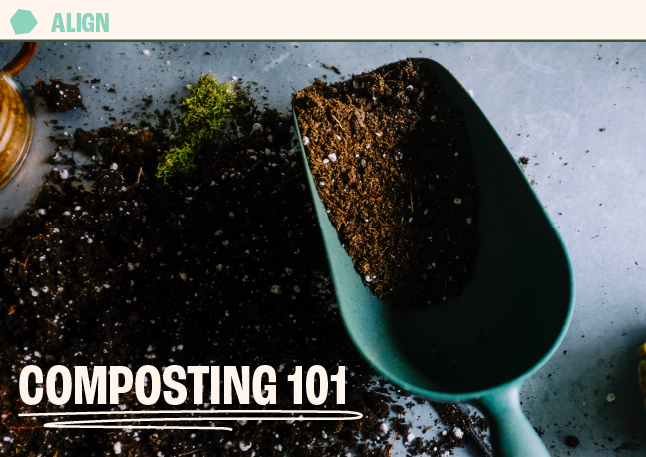Welcome back to another round of fact-checking social media influencers. I’ve been creating these fact-checks to combat misinformation and provide perspective on what I see are some of the most common claims gaining traction.
Recently psychiatrist Dr. Paul Saladino posted a video defending his claims about seed oils after Instagram fact-checked his video and flagged it as misinformation. I posted a video summary here.
In his video, Paul attempts to defend his position that seed oils are toxic, bad for human health, and should be completely eliminated from our diets. I want to take a closer look at the evidence he presents as it really does not represent the totality of research on seed oils.
Paul claims that oxidised LDL should be the centre of our focus when assessing cardiovascular risk, not total levels of LDL, cholesterol, or ApoB. He also claims that seed oils, due to their high omega-6 content, increase oxidised LDL, which raises the risk of heart disease.
He cites several studies to support his claims, including the Minnesota Coronary Experiment, a single randomised controlled trial performed in the 1960s.
There’s a lot to unpack here, so let’s break it down into 5 points.
#1 – Although Paul makes it sound like oxidised LDL is a great predictor of cardiovascular disease, we actually have plenty of research showing that what most accurately predicts cardiovascular disease is the total number of circulating ApoB-containing lipoproteins which include all LDL particles, oxidised or not. (1)
The higher your ApoB, the higher your risk of cardiovascular disease. (2) I’ve covered this concept in depth both on the blog and on the podcast here and here.
This is an inconvenient truth for Paul and members of the carnivore diet community because despite often losing some weight and feeling better on what is essentially an elimination diet, eating a diet high in animal fat pretty much guarantees a rise in ApoB levels. (3) And despite cherry-picking single studies and erroneously pointing the finger at oxidised LDL, the majority of time-tested research tells us high ApoB is bad news for the long-term risk of heart disease. (4)
#2– Even if we entertain the idea that oxidised LDL is an important risk factor for cardiovascular disease and that seed oils increase oxidised LDL in the blood, would this actually mean higher rates of heart disease?
Well, maybe not. You see, it depends on where the oxidation occurs. If anything, it’s oxidised LDL in the artery wall that’s a problem, not oxidised LDL in circulation in the blood. This is a key to understanding the nuance of this topic that many of my carnivore friends might be missing.
Oxidised LDL in circulation may actually be LESS likely to penetrate the artery wall and build up as fatty plaque, otherwise known as atherosclerosis. (5)
Furthermore, seed oils may cause some oxidation, but they’ve also been shown to lower ApoB, improve insulin sensitivity and blood glucose control, lower visceral fat, and may even improve inflammation and blood pressure. (6, 7, 8, 9, 10, 11)
And this brings up a really important point. When we examine specific foods, we must favour research looking at health outcomes over single mechanisms. Nutrients, and foods like seed oils, interact with our physiology in many ways; some we are aware of, and many we probably are not. While it’s useful to examine how certain nutrients function in the body, what we really need to know is how they impact health and longevity.
When it comes to seed oils, the evidence looking at health outcomes does not support the claim that they are toxic to long-term health.
#3– Observational research shows us that people who consume more linoleic acid, an omega-6 fat found in seed oils and that Paul describes as toxic, have less heart disease.
A 2019 meta-analysis published in Circulation, one of the world’s top cardiology journals, involving 10s of thousands of people from all over the world, tracked for up to 32 years, identified that people with higher levels of linoleic acid in their blood and fat stores, actually have a lower risk of major cardiovascular events. (12)
If seed oils are so toxic, as Paul claims, we would expect to see higher rates of heart disease in those with more linoleic acid exposure. Instead, strong evidence points to the opposite being true. The higher the level of linoleic acid in the body, the lower the risk of cardiovascular disease.
#4 – Over the past 10 years or so, a new type of study called Mendelian randomization has emerged, which allows us to reduce some of the potential bias that may exist in traditional observational studies.
Effectively, we can look at a large population whose genetic data we have and see how various gene variations correlate with disease outcomes. The neat thing about this type of study is because it’s genetically determined and not relying on behaviour, we can assume it’s randomly dispersed through society. This means differences in things like exercise, alcohol, and smoking are less likely to affect our results, which is a good thing when trying to determine how certain nutrients impact health.
These types of studies have allowed researchers to examine how genetically determined levels of linoleic acid in the body correlate with disease.
So what do we see? A recent study using this technique found that people who have higher linoleic acid expression, that is, more of this omega-6 in their tissues, have less cardiovascular disease than people with lower linoleic acid expression. (13)
Again, based on Paul’s claim that these omega-6s are toxic, we would expect to see people with genetically higher linoleic acid levels have a higher risk of heart disease. And yet again, the evidence points to the opposite.
#5 – Paul puts forward a single RCT, the Minnesota Coronary Experiment, comparing saturated fat with vegetable oil.
He states that this is the largest study of its kind. And it is a pretty nice study, to be fair, but it actually didn’t pan out the way the researchers had planned, something you can only appreciate if you dig into the results section of the paper.
Paul is right; this study did start out with over 9,000 subjects; however, due to the fact that it’s very hard to keep people in mental health institutions, the setting in which this study was performed, approximately 75% of the subjects left the study in under 12 months, and the median follow up was only a little over a year. (14)
As a result, this study became underpowered, meaning it didn’t have enough subjects followed for a long enough amount of time to provide strong data.
There’s also some question about whether the group given vegetable oil was also inadvertently given trans fats via the margarine they were provided for the study. (15) Most margarine in the 1960s contained trans fats before regulations came into place.
These confounding factors make the Minnesota Coronary Experiment a less-than-stellar source of evidence. If we wanted to single out one study (more on that in a moment), the LA veterans study, which followed fewer people but for 8 years with a much lower rate of drop-outs, is better powered. That is, more person-years follow-up than the Minnesota Coronary Experiment and more reliable data.
In the LA veterans study, people eating less saturated fat and more unsaturated fats from corn oil, soybean, safflower, and cottonseed oil had 30% fewer cardiovascular events compared to those eating high amounts of animal fat. (16) These results should certainly caution those considering a carnivore diet and hopefully put the perceived dangers of seed oils in perspective.
But the truth is, we shouldn’t base nutrition claims on single studies. That would just be playing into this game of cherry-picking. Instead, we need to also look at studies known as meta-analyses that combine the results of many trials looking at the same question. By pooling the data, researchers can examine whether their results hold true in a bigger sample of people.
For example, the 2020 Cochrane review combined over 10 trials and more than 53,000 participants to compare saturated fat-rich diets with diets high in unsaturated fats from plant oils. They found that when people eat less saturated fats and more unsaturated fats from oils such as canola, corn, and safflower, they have a significantly reduced risk of cardiovascular events. (17)
And this brings up a really important point when it comes to identifying misinformation. Nutrition science is complex, as Paul points out in his video. On this we can agree. There are all kinds of studies out there, and if you’re looking to support a specific claim, it’s often possible to find something that concludes you are right.
However, single studies have limitations, and closer reading often reveals issues with the study design, adherence, and conclusions. We have to look at MANY studies over MANY years to get a true understanding of the impact of food and diet on health.
In this case, the majority of nutrition science does not support Paul’s claim that seed oils are toxic.
So, I do believe there were legitimate grounds for Paul’s post to be classified as misinformation. It simply does not represent the best evidence we have. And while I agree with Paul that there should be space for good-faith discussions about nutrition science, when you make such a strong claim using fear-mongering language, it shouldn’t be a surprise when you get fact-checked.
Now, to round this out, I just want to clarify that this does not mean we all need to consume seed oils. It’s perfectly fine to use olive oil or even no oil. While limiting saturated fats is a clear necessity, going out of your way to add seed oils to your diet isn’t really the point. What I suspect is happening is that people like Paul are conflating these oils with ultra-processed junk food, which I would agree is a class of foods that we as a society should minimize.
The key takeaway is that seed oils simply are not the poison that Paul and others are making them out to be. Disregarding the majority of scientific evidence sounds a lot like misinformation to me.
And remember, while nutrition science is complex, we do have a fairly good idea of what a basic healthy dietary pattern looks like. Health Canada has a great visual summary of what an evidence-based approach to healthy eating might look like. If you follow their guidelines, it’s difficult to go wrong.
References:
- Wu T, Willett WC, Rifai N, Shai I, Manson JE, Rimm EB. Is plasma oxidized low-density lipoprotein, measured with the widely used antibody 4E6, an independent predictor of coronary heart disease among U.S. men and women?. J Am Coll Cardiol. 2006;48(5):973-979. doi:10.1016/j.jacc.2006.03.057
- Sniderman AD, Williams K, Contois JH, et al. A meta-analysis of low-density lipoprotein cholesterol, non-high-density lipoprotein cholesterol, and apolipoprotein B as markers of cardiovascular risk. Circ Cardiovasc Qual Outcomes. 2011;4(3):337-345. doi:10.1161/CIRCOUTCOMES.110.959247
- Burén J, Ericsson M, Damasceno NRT, Sjödin A. A Ketogenic Low-Carbohydrate High-Fat Diet Increases LDL Cholesterol in Healthy, Young, Normal-Weight Women: A Randomized Controlled Feeding Trial. Nutrients. 2021;13(3):814. Published 2021 Mar 2. doi:10.3390/nu13030814
- Ference BA, Ginsberg HN, Graham I, et al. Low-density lipoproteins cause atherosclerotic cardiovascular disease. 1. Evidence from genetic, epidemiologic, and clinical studies. A consensus statement from the European Atherosclerosis Society Consensus Panel. Eur Heart J. 2017;38(32):2459-2472. doi:10.1093/eurheartj/ehx144
- Oörni K, Pentikäinen MO, Annila A, Kovanen PT. Oxidation of low density lipoprotein particles decreases their ability to bind to human aortic proteoglycans. Dependence on oxidative modification of the lysine residues. J Biol Chem. 1997;272(34):21303-21311. doi:10.1074/jbc.272.34.21303
- Imamura F, Micha R, Wu JH, et al. Effects of Saturated Fat, Polyunsaturated Fat, Monounsaturated Fat, and Carbohydrate on Glucose-Insulin Homeostasis: A Systematic Review and Meta-analysis of Randomised Controlled Feeding Trials. PLoS Med. 2016;13(7):e1002087. Published 2016 Jul 19. doi:10.1371/journal.pmed.1002087
- Rosqvist F, Iggman D, Kullberg J, et al. Overfeeding polyunsaturated and saturated fat causes distinct effects on liver and visceral fat accumulation in humans. Diabetes. 2014;63(7):2356-2368. doi:10.2337/db13-1622
- Bjermo H, Iggman D, Kullberg J, et al. Effects of n-6 PUFAs compared with SFAs on liver fat, lipoproteins, and inflammation in abdominal obesity: a randomized controlled trial. Am J Clin Nutr. 2012;95(5):1003-1012. doi:10.3945/ajcn.111.030114
- Katan MB, Zock PL, Mensink RP. Effects of fats and fatty acids on blood lipids in humans: an overview. Am J Clin Nutr. 1994;60(6 Suppl):1017S-1022S. doi:10.1093/ajcn/60.6.1017S
- Miura K, Stamler J, Nakagawa H, et al. Relationship of dietary linoleic acid to blood pressure. The International Study of Macro-Micronutrients and Blood Pressure Study [corrected] [published correction appears in Hypertension. 2008 Sep;52(3):e29]. Hypertension. 2008;52(2):408-414.
- Bjermo H, Iggman D, Kullberg J, et al. Effects of n-6 PUFAs compared with SFAs on liver fat, lipoproteins, and inflammation in abdominal obesity: a randomized controlled trial. Am J Clin Nutr. 2012;95(5):1003-1012. doi:10.3945/ajcn.111.030114
- Marklund M, Wu JHY, Imamura F, et al. Biomarkers of Dietary Omega-6 Fatty Acids and Incident Cardiovascular Disease and Mortality. Circulation. 2019;139(21):2422-2436. doi:10.1161/CIRCULATIONAHA.118.038908
- Park S, Lee S, Kim Y, et al. Causal Effects of Serum Levels of n-3 or n-6 Polyunsaturated Fatty Acids on Coronary Artery Disease: Mendelian Randomization Study. Nutrients. 2021;13(5):1490. Published 2021 Apr 28. doi:10.3390/nu13051490
- Sacks FM, Lichtenstein AH, Wu JHY, et al. Dietary Fats and Cardiovascular Disease: A Presidential Advisory From the American Heart Association [published correction appears in Circulation. 2017 Sep 5;136(10 ):e195]. Circulation. 2017;136(3):e1-e23. doi:10.1161/CIR.0000000000000510
- Li J, Guasch-Ferré M, Li Y, Hu FB. Dietary intake and biomarkers of linoleic acid and mortality: systematic review and meta-analysis of prospective cohort studies. Am J Clin Nutr. 2020;112(1):150-167. doi:10.1093/ajcn/nqz349
- Dayton, S., Pearce, M.L., Hashimoto, S., Dixon, W.J., & Tomiyasu, U. (1969). A Controlled Clinical Trial of a Diet High in Unsaturated Fat in Preventing Complications of Atherosclerosis. Circulation, 40, II-1–II-63.
- Hooper L, Martin N, Jimoh OF, Kirk C, Foster E, Abdelhamid AS. Reduction in saturated fat intake for cardiovascular disease. Cochrane Database Syst Rev. 2020;8(8):CD011737. Published 2020 Aug 21. doi:10.1002/14651858.CD011737.pub3







